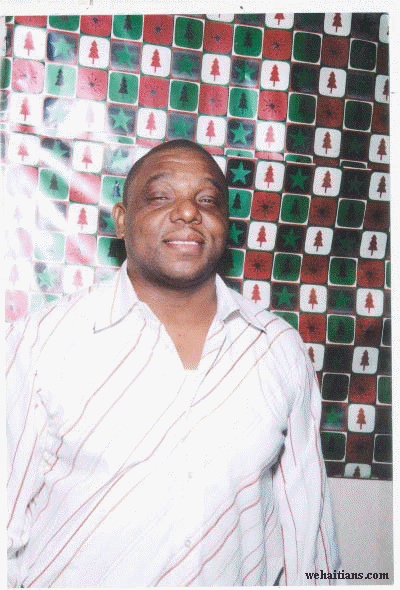 |
| _______________________________ |
The writer, Yves A. Isidor, a longtime economics
faculty member at the University of Massachusetts-
Dartmouth, after principally teaching the subject of
the same name at many Boston area colleges
and universities, always places, too, great emphasis
on issues related to Economics of Crime and its
Prevention: How Is Too Much in one of his assigned
courses, Contemporary Issues Economics,
alternately, Economics of Social Issues. Often,
Professor Isidor conveys his thoughts or opinion,
also to the U.S. news media, on issues not limited to
the very sad Republic of Haiti, which certainly does
not need an army.
| _______________________________ |
What's more, regrettably false rumor is not only the opium or opiate of the "ignorant masses," to borrow the very few words of Marx, who are incapable of determining the anticipated consequences of their ("they are to rule," famously said Plato) irreprehensible actions when they subsequently cause, at least, reparable psychological damages, irreparable psychological trauma, but it trumps even basic clarity, rudimentary reasoning about a functioning democratic system (imperfect it may be), say, that of the U.S., where the arrest of a person for an alleged wrong or wrongs does not automatically equate a conviction and ultimately punishment - that is incarceration in a city/county jail or state/federal penitentiary (if any), depending on the gravity of the crime or crimes proven committed by the offender, for a short or long duration of time.
| Related |
What is also, undoubtedly, consequential about that, and for a longtime so, is that, blanket abject poverty, the principal cause of the small Caribbean corner's cholera epidemic, to cite only this major threat to political stability to urgently needed economic development, will indefinitely continue to be one of the principal determinants of nearly all of the historically troubled small land's estimated 9.2 million citizens quality of life.
The poor men and women in the Boston's diaspora community, if they are to think for themselves, cease to be taken for comedians by a Graham Greene-like, since the internationally renown British author deceased long ago, or simply a bunch of risible people, must know that Boston's Leo Desire (he is not of nature public speakers, nor does he speaks in a mumble), a criminal defendant like many before and after him, again who about two months ago was taken out of the circulation, has since been denied bail (in such case, the presumption of innocence is largely theoretical), permitting him to temporarily or permanently regain his liberty (depending on the outcome of the case), over allegations of grand-mortgage fraud, is presumed to be innocent until otherwise, that is a verdict of culpability is returned against him by a court of law after a bench or trial by jury - the presumption of innocence, an ancient tenet of criminal law actually, a misnomer. According to the U.S. Supreme Court, the presumption of innocence of a criminal defendant is best described as an assumption of innocence that is indulged in the absence of contrary evidence.
Why only a conviction for a white-collar crime or a few of them associated with grand-scale mortgage fraud, in the aftermath of which the term of imprisonment is at least 1 year, matters a lot more for Mr. Desire, his immediate family members and others concerned about what the future holds for him when compared to other persons (U.S. citizens, by birth or naturalization) who have also been convicted of different, but a lot worse aggravated felonies, such as arson that results in the death of many lives, if not, too, offsprings made urchins or orphans, in most cases, both, and because of so they each receive a gargantuan sentence?
 |
| U.S. Immigration and Customs Enforcement police (ICE), after placing an immigrant under arrest. Photo may be copyrighted. |
| The perils of being a lawful permanent resident in the U.S. and violate its rules of conduct or procedure |
|
_________________ |
|
|
|
|
| "The past is not dead. In fact, it's not even the past," William Faulkner. | |
|
_________________ |
|
|||||
   |
|||||
| Ronald "Roro" Nelson, (L) a very easy and pleasant person to speak to. Center (R), Mr. Nelson standing behind Haiti's President Michel Joseph Martelly. In another undated Wehaitians.com file photo that reads MINKZE at the very bottom, Mr. Nelson (L) posing with President Martelly (C) for a historic photo during the latter's imperial-like presidential inauguration gala. | |||||
Trial Court of Massachusetts 510 Washington Street Dorchester, MA 02124 Date: 11/10/2011 Start: 11:07 AM Jury Trial Section 13A. (a) Whoever commits an assault or an assault and battery upon another shall be punished by imprisonment for not more than 2 1/2 years in a house of correction or by a fine of not more than $1,000. A summons may be issued instead of a warrant for the arrest of any person upon a complaint for a violation of any provision of this subsection if in the judgment of the court or justice receiving the complaint there is reason to believe that he will appear upon a summons. (b) Whoever commits an assault or an assault and battery: (i) upon another and by such assault and battery causes serious bodily injury; (ii) upon another who is pregnant at the time of such assault and battery, knowing or having reason to know that the person is pregnant; or (iii) upon another who he knows has an outstanding temporary or permanent vacate, restraining or no contact order or judgment issued pursuant to section 18, section 34B or 34C of chapter 208, section 32 of chapter 209, section 3, 4 or 5 of chapter 209A, or section 15 or 20 of chapter 209C, in effect against him at the time of such assault or assault and battery; shall be punished by imprisonment in the state prison for not more than 5 years or in the house of correction for not more than 2 1/2 years, or by a fine of not more than $5,000, or by both such fine and imprisonment. |
More, the sad news conveyed to Mr. Nelson by a jury of his peers came months after Haitian feminist groups, others said to be principally envious (being characterized by envy is nothing new in the destructive Haitian culture) of his new found wealth (his friend Martelly, in good times and bad times, is now president) incessantly pressured the alleged victim, Ms. Astride Pantal Walsh, 45, a former girlfriend, the party against which the criminal action was brought owed about $3,000.00, and like a debt collector, was aggressively trying to recover, to press charges against him.
| Is it the end of Mr. Nelson's Calvary or Golgotha-like? |
|
Also related |
|
More
| Posted September 13, 2009 |


